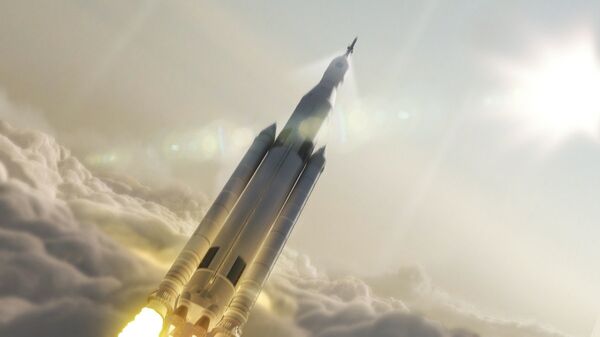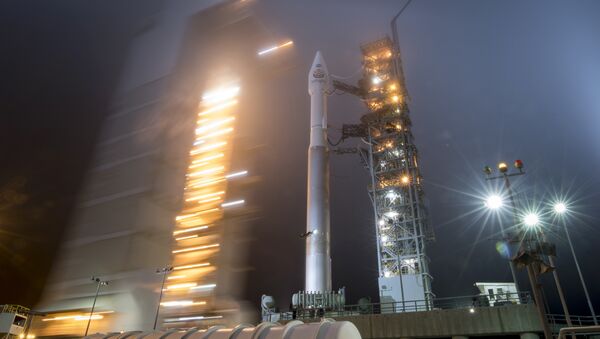Boeing deliberately torpedoed the development of a promising and inexpensive low-Earth orbit refueling concept because it posed a threat to the economic justification for its multi-billion-dollar SLS rocket, George Sowers, a physicist and academic who led the advanced programmes group at the United Launch Alliance (ULA) in the early-to-mid-2010s, has claimed.
In a series of tweets dedicated to NASA’s recent announcement that the Glenn and Marshall space centres would partner with SpaceX to create the technologies associated with the transfer of propellants to orbit, Dr. Sowers suggested that ULA, a rocket manufacturer co-owned by Boeing and Lockheed Martin, was working on similar technologies nearly a decade ago.
NASA announces new space tech partnerships. SpaceX fans will like this:
— Eric Berger (@SciGuySpace) 30 июля 2019 г.
"SpaceX will work with Glenn and Marshall to advance technology needed to transfer propellant in orbit, an important step in the development of the company’s Starship space vehicle."https://t.co/r3UwwqU3Rx
As Ars Technica explained, ULA sought to create a reusable version of its Centaur upper stage known as the ‘Advanced Cryogenic Evolved Stage’ (ACES) for refueling in space, pitching the idea to NASA and saying a series of orbiting fuel depots which would cost significantly less than the alternatives.
“We had released a series of papers showing how a depot/refueling architecture would enable a human exploration programme using existing (at the time) commercial rockets,” Dr. Sowers wrote, in a multipart explanation on Twitter.
A lot of that was aimed at me and my advanced programs group at ULA. We had released a series of papers showing how a depot/refueling architecture would enable a human exploration program using existing (at the time) commercial rockets.
— George Sowers (@george_sowers) 31 июля 2019 г.
“Boeing became furious and tried to get me fired. Kudos to my CEO for protecting me. But we were banned from even saying the ‘d’ word out loud,” the engineer noted, referring to the ACES space-based fuel ‘depot’ concept.
“Sad part is that ULA did a lot of pathfinding work in that area and could have owned the refueling/depot market, enriching Boeing (and Lockheed) in the process. But it was shut down because it threatened SLS,” Sowers added.
According to the scientist, who is now a professor at the Colorado School of Mines, space-based refueling is “an incredible game changer” of an idea. Sowers said he was thrilled to hear Vice President Mike Pence bring up the technology at the 2018 Space Symposium in Colorado Springs.
Ultimately, Sowers said his experience with Boeing reminded him of the Kodak story. “Kodak invented digital photography, but did not pursue because it threatened their film business. Now they are out of business...” he concluded.
A Boeing spokesperson told Ars Technica that the company would look into Sowers claims.
Throughout the last decade, Boeing had expressed criticism of the space-based fuel depot concept, claiming the technology was not mature enough for use. However, last week, NASA announced that it would work with SpaceX on an in-orbit refueling system for the Starship spacecraft, sparking fresh interest in the concept.
In the meantime, the $12 billion Space Launch System super heavy rocket programme, intended to be inaugurated a year ago, continues to fall behind schedule, with the timetable slipping to 2019 and, recently, to 2020 amid reports of considerable cost overruns. The programme faced flak from lawmakers in Congress in March amid the delays and expenses, and NASA Administrator Jim Bridenstine has said the agency is considering the use of commercial rockets to make President Trump’s promise of a new manned Moon mission by 2024 a reality.




